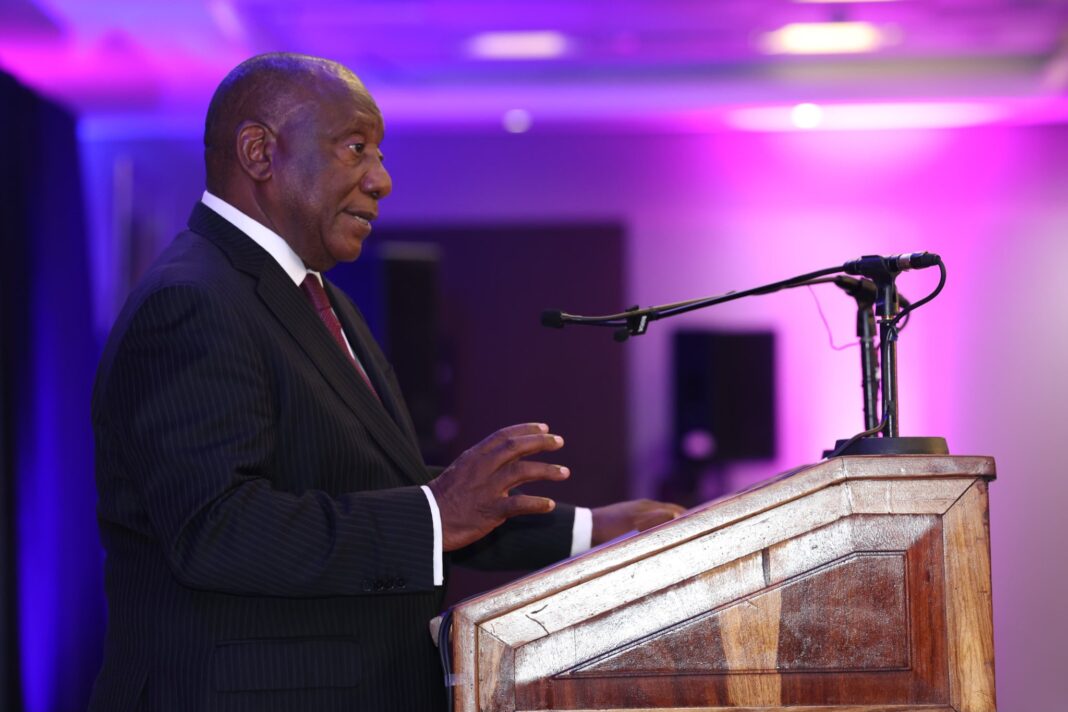By Simon Nare
President Cyril Ramaphosa has described Johannesburg as a city that has been allowed to deteriorate for far too long and was crying out for rejuvenation.
In his opening remarks during a meeting between the national executive and the Johannesburg executive council, Ramaphosa said the city of gold must return to its former glory.
“This city is crying out, crying out for rejuvenation. It is a painful sight to go through the centre of the city and to see what it has deteriorated to. It is possible it is doable,” he said.
Ramaphosa highlighted hijacked buildings that were not paying rates and taxes, saying those buildings must be taken back, and if necessary, the new Expropriation Act could be used to acquire some of the buildings without compensation.
The president proposed the establishment of Presidential Johannesburg Working Group, like the one that was introduced in eThekweni which has been credited with turning around the KwaZulu-Natal metro.
“We are now going to do real effective work because this will bring together all levels of government and expertise of our various stakeholders to accelerate service delivery, to stabilise your city’s finances as well as operations and enable economy growth and job creation,” said Ramaphosa.
He added that Johannesburg was special and was where millions of South Africans have come for a better life.
Further, as the largest metro in the country, responsible for 16% of South Africa’s GDP, Johannesburg was integral to the economy as a whole and was the economic and cultural heartbeat of the nation.
Ramaphosa said as the country held the G20 presidency this year, Johannesburg will be the central of the many meetings already taking place, for the G20 Summit in November.
The efforts to rejuvenate the city was not because it will be central to the G20 but to make it liveable and attract investment, which would lead to the creation of jobs. But the visitors coming for the G20 must be left with an impression and an unforgettable experience about the city.
“We will need to refocus on the rejuvenation of the city in all its ramifications. Johannesburg is the history of our country and it is this history that has been allowed to deteriorate for far too long. Efforts must be taken to make it a liveable, thriving and safe space for all citizens,”.
The president told of one evening when he wondered in the inner city with security detail and while he was impressed by the presence of law enforcement officers, it was not a pretty site.
“I found the city filthy. The city was not clean. There was rubbish all over the show. I got out of the car and I even spoke to police officers and I said to them this city looks torn and they agreed,” he said.
He reminisced about how Johannesburg was when it would light up at night and lovers would stroll with no care in the world.
He gave an example of Ethiopian capital Addis Ababa, which he said was so clean and was brought to life by the plantation of a billion trees. He said the city could do better and also plant billion trees to also light up the city.
“It is this that we must now do, work together to ensure that the inner city is well primed to be rejuvenated and that we should make it attractive for new investment and jobs
“It is possible because we have the best infrastructure in this city, perhaps the best in the continent. This is an old city, the infrastructure yes needs to be revived and rebooted but I do believe that it is doable,” he said.
Ramaphosa said the council and the national government needed to make strides to unlock Johannesburg’s role as the engine of growth for the country’s economy.
He thanked Johannesburg mayor Dada Morero and his team for their frank discussion with The Presidency in a meeting prior to the council meeting where they asked for national intervention.
INSIDE POLITICS

